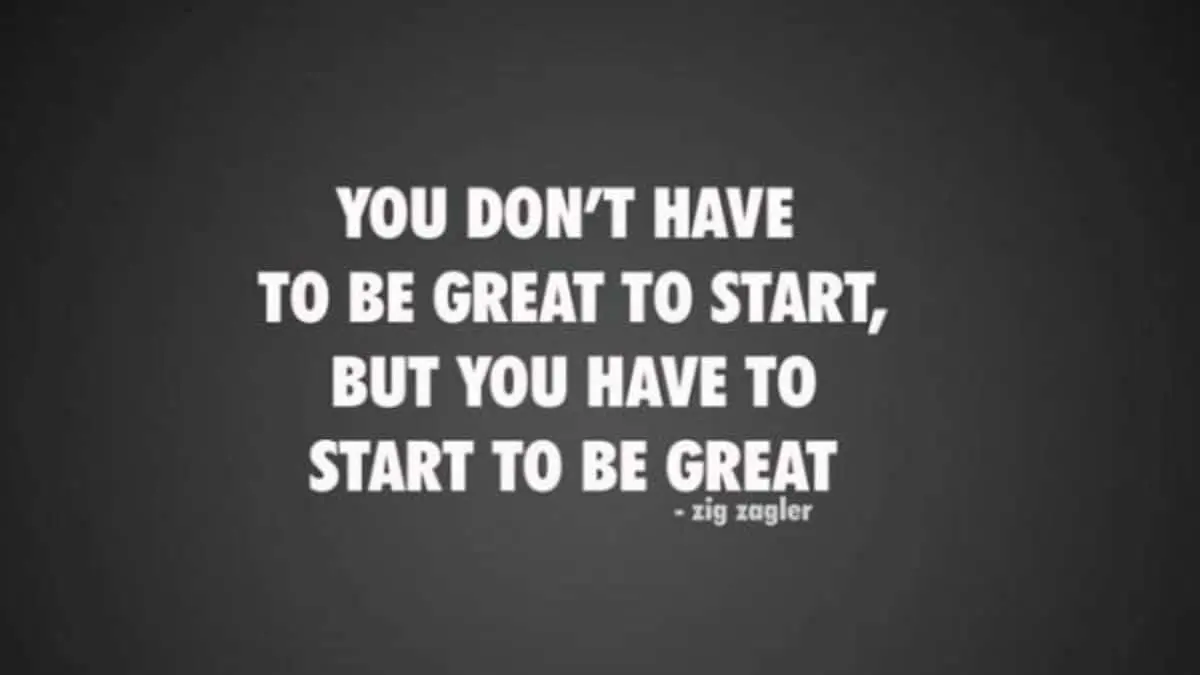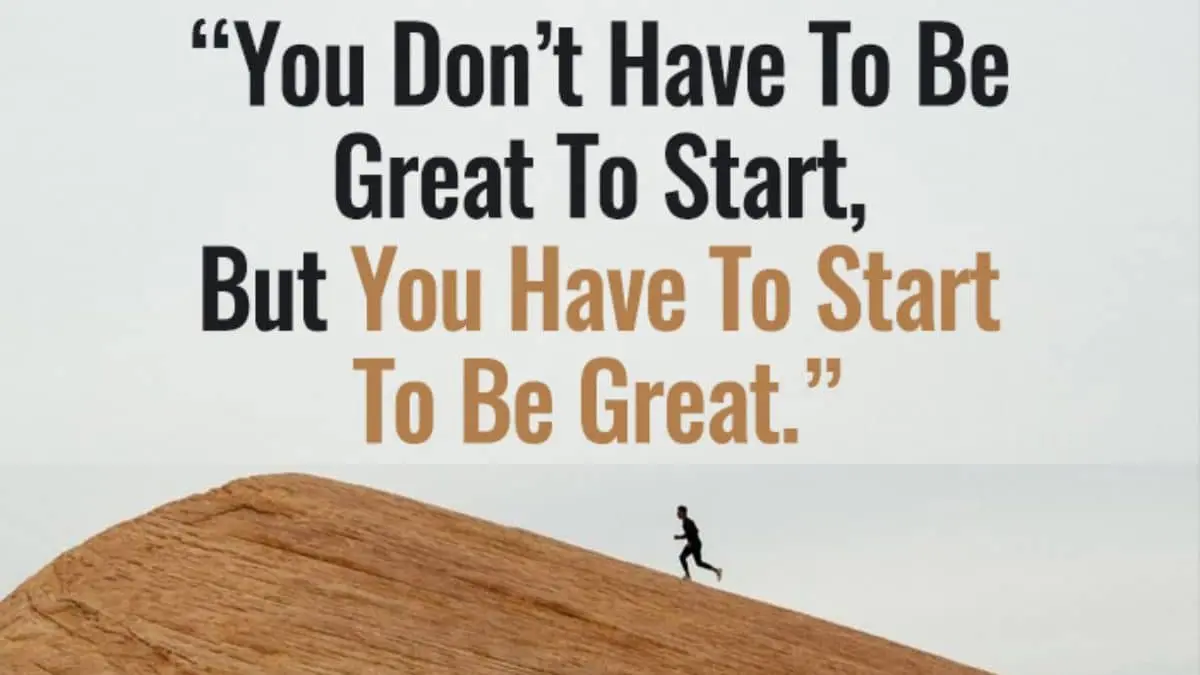The journey toward achieving greatness is paved with perseverance, hard work, and a relentless pursuit of one’s goals. However, the most critical step on this path is often the most overlooked — the decision to begin. The quote, “You don’t have to be great to start, but you have to start to be great,” encapsulates a profound truth about success and personal development. This blog explores the depth of this statement, unravelling how the act of starting is intrinsically linked to the quest for greatness.
The Misconception of Innate Greatness
In our pursuit of success and mastery, we often fall prey to a dangerous misconception: the belief in innate greatness. This is the idea that to achieve anything significant, one must be born with exceptional talents and abilities. It’s a pervasive myth, propagated by Stories of prodigies and geniuses who seem to effortlessly achieve what others can only dream of. However, this belief is not only misleading but also incredibly disempowering. It suggests that the potential for greatness is a rare gift, rather than something that can be developed through dedication and hard work.
Starting Small: The First Step to Greatness
Embarking on the journey to greatness begins with a single, often small, step. This foundational truth is easy to overlook in a world that celebrates grand achievements and instantaneous success. Yet, the most monumental accomplishments in history, and the greatest personal transformations, have their roots in humble beginnings. Starting small is not just a practical approach; it’s a powerful strategy for sustainable growth and eventual success.
Embracing Humble Beginnings
Every journey towards mastery begins at the same place: the beginning. It’s where the initial spark of interest is ignited and where the first lessons are learned. Many of the world’s most successful individuals started with minimal resources, simple ideas, or small actions. Consider J.K. Rowling, who sketched the initial ideas for Harry Potter on a napkin in a café, or Steve Jobs, who started Apple in a garage. Their Stories underscore a powerful principle: you don’t need grand beginnings for a great future. What you need is the courage to start where you are, with what you have.
The Power of Small Steps
The idea of taking small steps towards a larger goal is supported by a wealth of psychological research. Breaking down a significant goal into smaller, manageable tasks makes the process less daunting and more achievable. Each small step completed is a victory in itself, providing motivation and a sense of progress. This approach also allows for adjustment and learning along the way, making the journey more flexible and adaptable to changing circumstances.

Overcoming Fear and Procrastination
Fear and procrastination are two of the most significant barriers to starting any endeavor, let alone achieving greatness. They are the silent thieves of dreams, constantly undermining our desire to step out of our comfort zones and pursue our goals. Understanding and overcoming these obstacles is not just part of the journey; it’s essential to even begin it.
Understanding Fear
Fear is a natural human emotion designed to keep us safe from harm. However, when it comes to pursuing our ambitions, fear often becomes irrational and counterproductive. It morphs into a fear of failure, rejection, or even success. This fear can paralyze us, preventing us from taking the very steps that would lead to our growth and achievement.
Strategies to Overcome Fear:
- Acknowledge and Name Your Fears: Understanding what you’re afraid of is the first step to overcoming it. Write down your fears and confront them.
- Rationalize Your Fears: Often, our fears are not based on reality but on exaggerated outcomes. Challenge these thoughts by looking at the facts.
- Take Controlled Risks: Start with small risks that push your comfort zone gradually. This can help build your confidence and reduce fear over time.
Understanding Procrastination
Procrastination is the act of delaying or postponing tasks. While it’s often mistaken for laziness, it’s usually a symptom of deeper issues like fear, perfectionism, or lack of motivation. Procrastination can create a vicious cycle of stress, low self-esteem, and decreased productivity, making it a critical barrier to overcome.
Strategies to Overcome Procrastination:
- Break Tasks into Smaller Steps: Large tasks can seem daunting. Breaking them into smaller, manageable parts can make them seem less intimidating and more achievable.
- Set Clear Deadlines and Rewards: Deadlines create a sense of urgency. Pair them with rewards for completing tasks to increase motivation.
- Understand Your Productivity Patterns: Identify when and where you work best and structure your tasks around these times.
Conclusion
The journey to greatness is a path filled with small beginnings, continuous learning, and the overcoming of inherent fears and procrastination. It’s a testament to the human spirit’s resilience and its relentless pursuit of improvement. The quote, “You don’t have to be great to start, but you have to start to be great,” encapsulates this journey perfectly. It reminds us that the key to achieving greatness lies not in possessing innate talents but in taking the initiative to begin, persist, and grow.
Also Read: Don’t let what you cannot do interfere with what you can do



